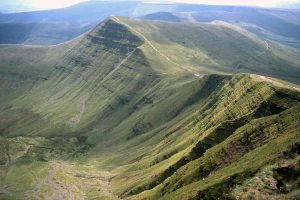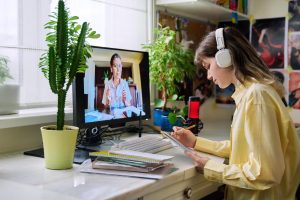 CHILDREN NEED to move more in order to improve both their health and learning according to Dr Nalda Wainwright, Director of the Wales Institute of Physical Literacy at the University of Wales Trinity Saint David (UWTSD).
CHILDREN NEED to move more in order to improve both their health and learning according to Dr Nalda Wainwright, Director of the Wales Institute of Physical Literacy at the University of Wales Trinity Saint David (UWTSD).
“Children are spending more and more time sitting still watching TV, playing on i-pads, computers and phones,” says Dr Wainwright. “This is worrying because we know from research that if children don’t learn to move well at an early age, they aren’t likely to become active as they grow up. This means they have a greater risk of being overweight or obese, developing type 2 diabetes, high blood pressure, osteoporosis and many other health conditions that are linked to lack of physical activity.”
“The lack of physical activity in young children is particularly worrying as we know that for very young children this activity helps develop physical skills. Since the 1980s research has told us that if young children don’t develop these physical skills this is a barrier that prevents them being able to take part in sport as they grow older.
“It is really important that young children have a foundation of good movement – and this comes through a lot of physical play with the help of teachers and parents. The good news is that by developing their physical skills, children are also developing their brain and improving their learning.”
At UWTSD, there is a strong focus on physical activity and health where Dr Wainwright and a team of staff are supporting the development of Physical Literacy. This is a concept that is growing in recognition throughout the world and is about ensuring that people are able to choose physical activity throughout life.
It is much more than learning skills and playing sport. It’s about being confident; motivated; and about understanding why activity is important and how to be active – whether that’s playing sport in a club, walking in the hills, doing yoga, cycling, swimming or taking a dance class.
Education and high quality physical education in particular has an important role to play in fostering physical literacy so that young people are motivated and able to access a range of activities. Physical literacy is also supported by coaches, instructors, volunteers and parents – in fact anyone that encourages and helps people to be active.
So what can you do to help your children get this foundation of movement?
“You could encourage them to play outside – go out with them to play catching and throwing games,” says Nalda Wainwright. “Make some simple target games with chalk on the ground, or a hoop and bean bags. Help them to balance and move in different ways, over, under and through furniture; walk along a line or jump over objects.
“Can your children run, gallop and skip? Can they dodge in chasing games? If the weather is bad, why not roll up some socks and play catching games or target games inside?”
“You need to ensure that your child is active for several hours every day. You could walk and let them hold your hand instead of sitting them in a buggy. Take them to a park on the way home from school every day so they can chase, run and climb before they start using computers or sit in front of the TV.
“If you can make small changes every day, you will see your children becoming better movers and they will want to move more. In the long term, you will help them become healthier and to learn better in school.”
Dr Nalda Wainwright carried out a study looking at the impact of the Foundation Phase on pupils’ physical literacy and the findings have been significant. Her research showed significant links between the pupils’ physical competence and their intellectual development.
“It is very exciting to see the impact of the Foundation Phase on children’s Physical Literacy and also on their wider learning. Research has shown for some time that there are very strong links between early physical development and cognitive development.
“We are very lucky here in Wales to have The Foundation Phase as, when it is delivered well it is an amazing curriculum that uses a playful approach to learning and gives children opportunities to learn outside every day.
“This approach gives children many opportunities to be active, but our research showed that some of the skills were not being developed and teachers needed more training.
“We are now carrying out more research and are currently running the largest project in early childhood motor development in the world. This is showing us that when we train teachers and parents to develop these skills with the pupils there is a significant impact on the children’s competence.
“This is very important as we now know that teachers and adults working with pre-school children can make a real difference to their chances of being active. We need to make sure that this training is available in all areas of Wales to avoid a health disaster in the future”
















Add Comment